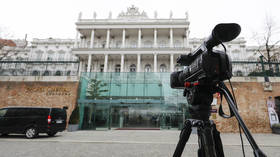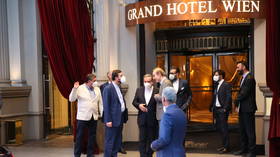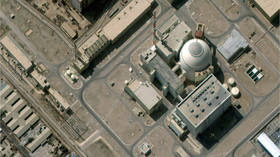Iran says nuclear deal ‘closer than ever’

Iran and world powers are on the brink of reaching an agreement on reviving the 2015 nuclear deal, Tehran’s top negotiator has said, though he added that the ball was now on the side of the deal’s other partners.
“After weeks of intensive talks, we are closer than ever to an agreement,” Ali Bagheri announced on Twitter late on Wednesday.
However, the diplomat warned against celebrating too soon, pointing out that “nothing is agreed until everything is agreed.”
He advised Iran’s negotiating partners to “be realistic, avoid intransigence” and refrain from repeating their past mistakes in dealing with his country. Tehran was still expecting “serious decisions” from the other side, Bagheri said.
French Foreign Minister Jean-Yves Le Drian also spoke about the deal on Thursday, telling his country’s Senate that “it is not a question of weeks, it is a question of days.”
“We need political decisions from the Iranians. They have a very clear choice,” Le Drian said, warning that Tehran will “unleash a serious crisis in the next days” by not signing the agreement.
The talks to revive the landmark Joint Comprehensive Plan of Action (JCPOA) have been underway in Austrian capital Vienna since April last year. They’ve been difficult and were interrupted several times by long breaks.
The UK, China, France, Germany and Russia are directly negotiating with Iran, while the US remains an indirect participant of the process. Those countries were the signees of the original deal in 2015.
Under the JCPOA, Tehran agreed to curb its nuclear military program in exchange for the lifting of international sanctions against it.
However, in 2018, then-US president Donald Trump unilaterally withdrew Washington from the landmark agreement, which he described as “the worst deal ever,” and imposed a raft of new restrictions on Tehran.
The move stunned the other signees, while prompting Iran to renege on its commitments and return to enriching uranium.
Attempts to revive the deal began after Joe Biden replaced Trump in the White House.
In early February, the US lifted some sanctions against Tehran, allowing foreign companies to engage in certain civilian projects at Iran’s Bushehr nuclear power station and some other facilities.
The move was seen as an attempt to facilitate the successful outcome of the negotiations in Vienna.














